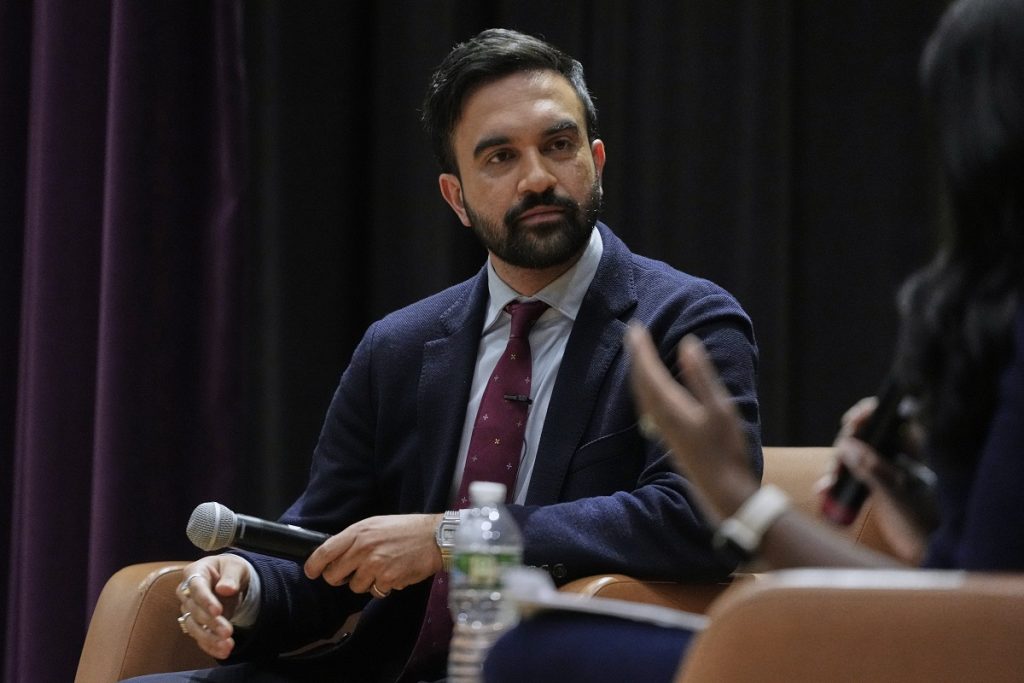The recent New York City mayoral election, which resulted in the victory of democratic socialist Zohran Mamdani, has had an unexpected impact—creating a unique opportunity for Miami Beach. A prominent Florida real estate developer and local Miami officials are seizing this political shift in the “Empire State” to attract wealthy New Yorkers and their businesses southward, promising a different urban experience. This strategic move highlights the evolving competition between major U.S. cities and the factors driving demographic and economic migration.
Across New York’s vibrant landscape—especially in busy areas like Times Square—digital billboards have recently displayed appealing images of sunny beaches and clear waters, accompanied by a bold message: “Miami Beach is Open for Business.” This powerful advertising campaign was conceived by Russell Galbut, a prominent Florida real estate developer. Galbut strongly believes that the election of a democratic socialist mayor in New York City offers a strong incentive for affluent individuals and major companies to consider making Miami Beach their new home.
Miami Beach’s Targeted Outreach Strategy
Galbut’s initiative is not a standalone effort; it aligns seamlessly with broader messaging from Miami Beach Mayor Steven Meiner. Mayor Meiner has been active on social media, speaking directly to New Yorkers who may feel dissatisfied after their recent election results. He highlights Miami Beach’s appeal by emphasizing its commitment to a “law and order” environment, abundant sunshine, and the major financial perk of having no state income tax. These qualities, Meiner suggests, make a compelling case for relocation.
However, the narrative is not without complexity. Mayor Meiner openly acknowledged concerns related to Mayor-elect Mamdani’s identification as a democratic socialist. These concerns revolve around potential impacts on business operations and economic freedom. Additionally, Mamdani’s outspoken support for Palestinian rights and his critical views on Israel have caused unease among some members of New York’s Jewish community and related businesses. Despite these concerns, post-election polls show that Mamdani secured nearly one-third of the Jewish vote. Attempts to obtain comment from Mamdani’s team regarding the Miami Beach advertising campaign were not successful.
Galbut’s decision to fund this costly advertising effort stems from clear frustration over what he perceives as economic stagnation in Miami Beach, one of Florida’s premier tourist destinations. While the city successfully implemented tough measures two years ago to curb recurring Spring Break violence—including serious incidents—the subsequent decline in sales tax revenue and rising business closures indicate a need for further efforts to boost the local economy. Galbut noted critically that while Miami Beach effectively communicated its desire to deter unruly Spring Break crowds, it lacked a clear campaign identifying the type of desirable population the city wants to attract.
Mixed Reactions to Miami Beach’s Economic Outlook
Despite Galbut’s concerns about stagnation, Mayor Meiner offers a more optimistic view of Miami Beach’s economic health. He proudly highlights a major $30 million revitalization project currently underway to strengthen the vibrant Lincoln Road commercial district. Meiner points to new luxury investments—including an upcoming high-end car showroom and the arrival of a prestigious Swiss watchmaker—as tangible evidence of growing capital inflows. He sees these developments as strong proof of Miami Beach’s evolving appeal, encouraging those who may have overlooked the city to reconsider its potential.
Local reactions to the campaign to attract more New Yorkers vary. Mayor Meiner noted overwhelmingly positive feedback from current Miami Beach residents. However, he acknowledged some online opposition, with concerns largely focused on the potential for increased traffic congestion as the population grows. An informal survey among residents revealed broad support for the campaign. One retired New Yorker living in Miami Beach welcomed the initiative, citing his reasons for leaving New York—cold weather, crowded streets, high crime rates, and steep taxes. He added that the election of a democratic socialist mayor in New York certainly would not motivate many current residents to stay.
On the other hand, some skepticism persists among Miami Beach locals. Michael Sprotzer, a local real estate professional, questioned the likelihood of a massive influx of New Yorkers and their companies suddenly relocating south. He noted that many investment firms that temporarily moved their operations to South Florida during the COVID-19 pandemic have since returned to New York. Sprotzer suggested that while the current political climate could provide additional motivation for individuals already considering a move, he does not expect a large migration of those deeply attached to life in New York City.

